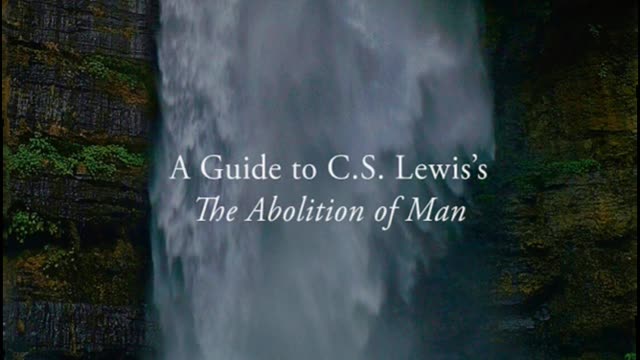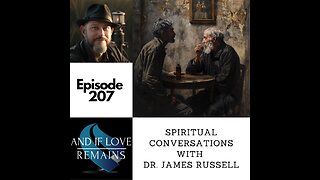Premium Only Content

Episode 64 - After Humanity: C.S. Lewis, The Abolition Of Man, and Michael Ward
After Humanity: A Guide to C.S. Lewis's The Abolition of Man is the go to resource for Lewis's great philosophical work. Today we talk about it with author Michael Ward.
Get your copy here:
https://www.wordonfire.org/humanity/#ward
MICHAEL WARD, a Catholic priest, is Senior Research Fellow at Blackfriars Hall, University of Oxford, and Professor of Apologetics at Houston Baptist University. He is the author of the best-selling and award-winning Planet Narnia: The Seven Heavens in the Imagination of C.S. Lewis, co-editor of The Cambridge Companion to C.S. Lewis, and presenter of the BBC television documentary The Narnia Code. On the fiftieth anniversary of Lewis’s death, Michael Ward unveiled a permanent national memorial to him in Poets’ Corner, Westminster Abbey, London.
After Humanity is a guide to one of C.S. Lewis’s most widely admired but least accessible works, The Abolition of Man, which originated as a series of lectures on ethics that he delivered during the Second World War.
These lectures tackle the thorny question of whether moral value is objective or not. When we say something is right or wrong, are we recognizing a reality outside ourselves, or merely reporting a subjective sentiment? Lewis addresses the matter from a purely philosophical standpoint, leaving theological matters to one side. He makes a powerful case against subjectivism, issuing an intellectual warning that, in our “post-truth” twenty-first century, has even more relevance than when he originally presented it.
Lewis characterized The Abolition of Man as “almost my favourite among my books,” and his biographer Walter Hooper has called it “an all but indispensable introduction to the entire corpus of Lewisiana.” In After Humanity, Michael Ward sheds much-needed light on this important but difficult work, explaining both its general academic context and the particular circumstances in Lewis’s life that helped give rise to it, including his front-line service in the trenches of the First World War.
After Humanity contains a detailed commentary clarifying the many allusions and quotations scattered throughout Lewis’s argument. It shows how this resolutely philosophical thesis fits in with his other, more explicitly Christian works. It also includes a full-color photo gallery, displaying images of people, places, and documents that relate to The Abolition of Man, among them Lewis’s original “blurb” for the book, which has never before been published.
-
 1:02:30
1:02:30
And If Love Remains
6 months agoEpisode 207 - Spiritual Conversations With Dr. James Russell
57 -
 22:10
22:10
CatholicReboot
3 years ago $0.01 earnedEpisode 79: Michael Davies
168 -
 1:04:25
1:04:25
Analogpod
3 years ago $0.01 earnedAnalogpod - Episode 3 - Michael Gregory
126 -
 11:35
11:35
Mother Phoenix Rising
3 years agoMy Wishes Episode - Dating After 50
34 -
 44:27
44:27
CatholicReboot
3 years agoEpisode 95: The Apparition of St Michael the Archangel
47 -
 1:09:18
1:09:18
After Hours
3 years agoBenjamin Luca, Studio Mix - After Hours Radio - Episode 1
16 -
 11:21
11:21
eclecticchick
3 years ago $0.01 earnedMexico Beach Florida: 1 year after Hurricane Michael hit.
1101 -
 6:30
6:30
vivafrei
3 years ago"Deep State" Going After Michael Flynn - Viva Frei Vlawg
6.02K93 -
 10:25
10:25
OutsideDog
4 years ago $0.01 earnedBefore and after hurricane Michael
4522 -
 1:31:00
1:31:00
Redacted News
5 hours agoBREAKING! Trump demands answers on UFOs over America as Pentagon hides the truth | Redacted News
130K190